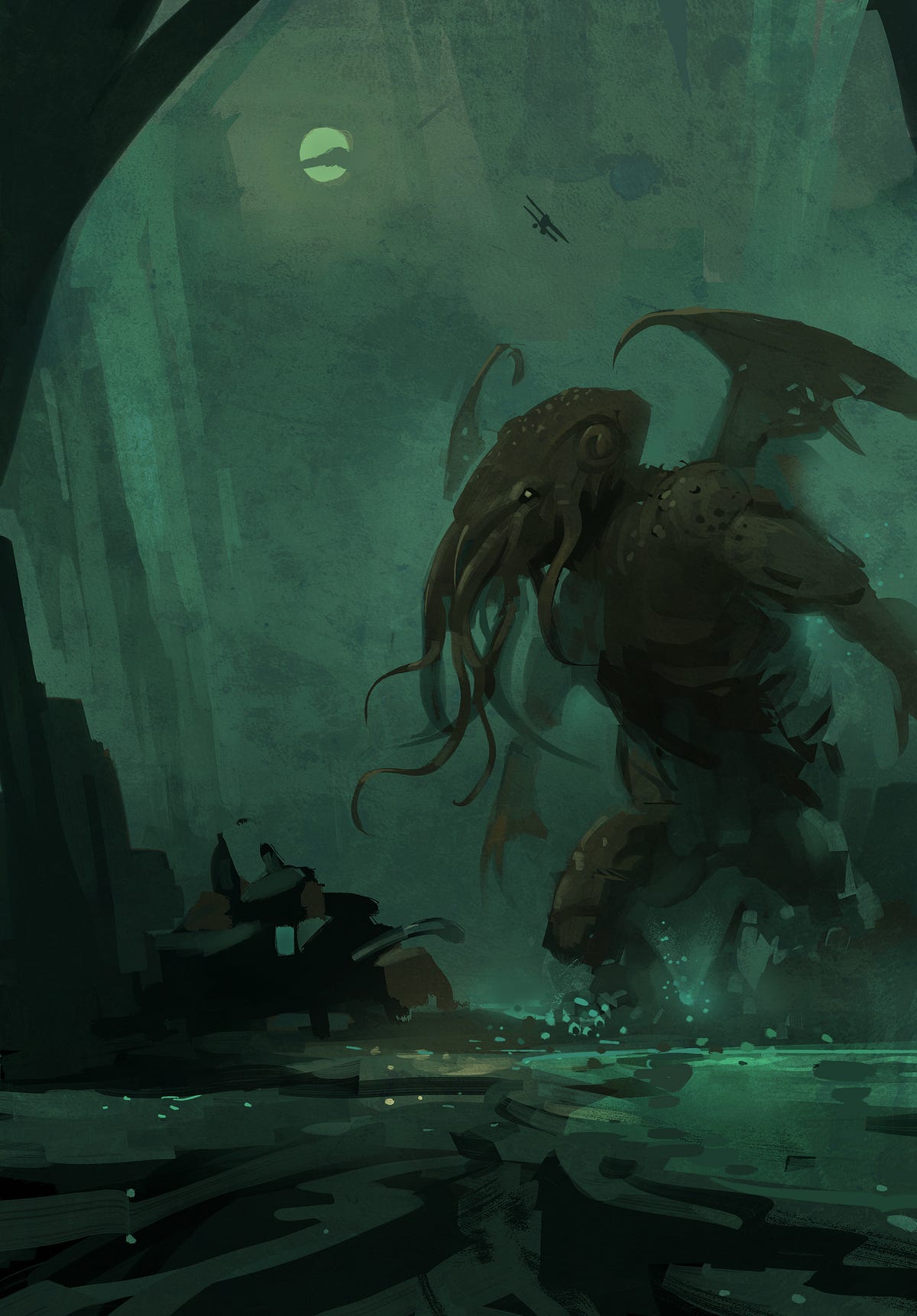Myth of the Cthulhu Monster
An oak branch danced to a
serenaded minuet ...
neither wind nor music
could be heard as
throbbing hearts were
beating like a drum roll.
The Cthulhu monster inhales
and shadows bend
all along the high mossy
wall of the great castle.
The keep wipes cascading
sweat from his brow;
a murder of crows send
'meet and greets' as the
monster of the mythos
looks toward the sky
black tea steeps and cream
drips slowly from a
silver spoon bequeathed
upon his year of birth.
An oak branch danced to a
serenaded minuet ...
the Cthulhu monster exhales
once again, and
dark shadows bend whilst
long wailing screams
drift and echo repentant as
twilight fades joining
this black starry night
whence a monster walked.
In the light of a flurry of
torches, his octopus like
head swung left then right,
feelers test the winds,
scales on his manatee
looking body reflect colors,
prominent claws on his hind
and fore feet dig in
and his long narrow wings
fluttering like a fairy.
An oak branch danced to a serenaded minuet ...
those in the castle quake and quiver in repose
The Cthulhu Monster is awake once more.

Cthulhu -- Dim Martin
"A monster of vaguely anthropoid outline, but with an octopus-like head whose face was a mass of feelers, a scaly, rubbery-looking body, prodigious claws on hind and fore feet, and long, narrow wings behind." Thus H. P. Lovecraft described the title character of "The Call of Cthulhu" in "Weird Tales" in 1928. Lovecraft probably adapted the creature's name from the Greek "chthonic" (subterranean, as applied to the manner and method of offering sacrifices to deities such as Hades and Persephone; in analytical psychology, the term is used to describe the spirit of nature within, the unconscious earthly impulses of the self). In correspondence Lovecraft transcribed the pronunciation of Cthulhu as Khlûl′-hloo and said that "the first syllable pronounced gutturally and very thickly. The u is about like that in full; and the first syllable is not unlike klul in sound, hence the h represents the guttural thickness." However, he claimed this is merely the closest that the human vocal apparatus can come to reproducing the syllables of an alien language, and on other occasions he provided different pronunciations. After his death in 1937 the most common pronunciation has been "kuh-THOO-loo."
ReplyDelete